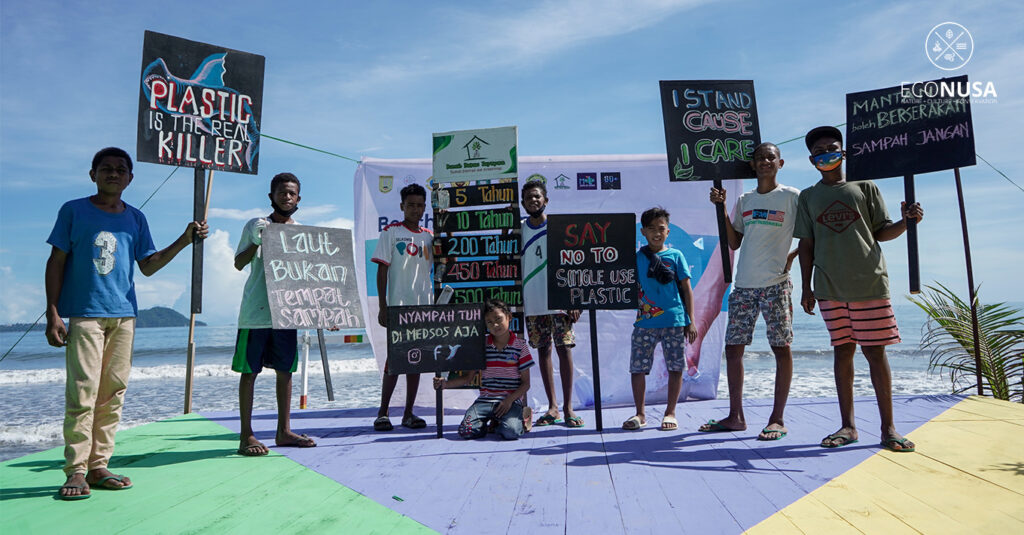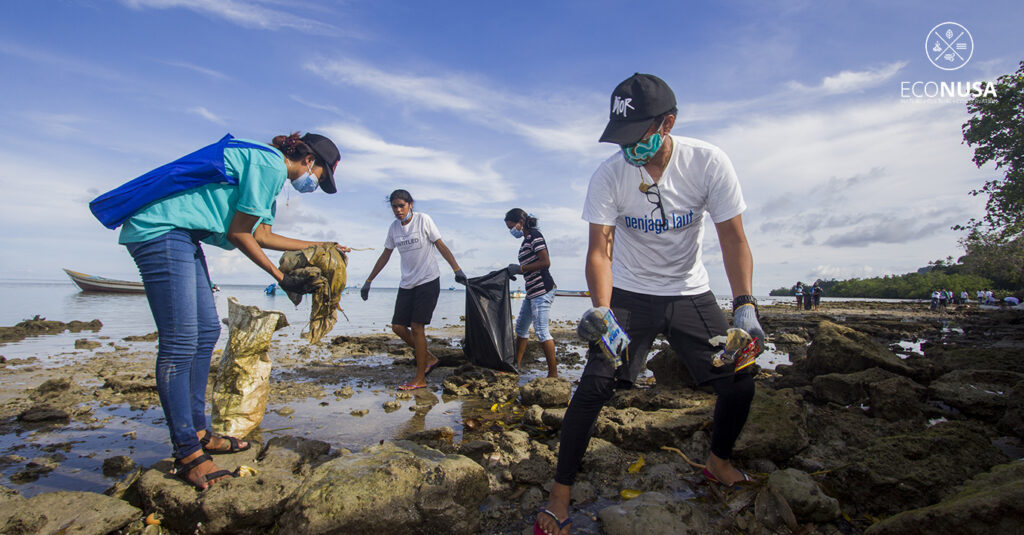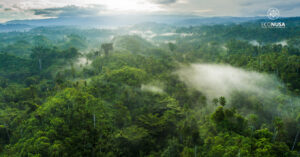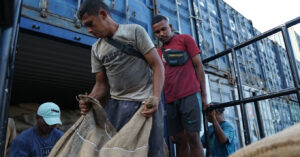
When there is a query on what big leap to do by youngster today, then democracy and climate crisis will become two major issues which are related to their roles. Both issues do not merely affect aspects of life and state, but also define what Indonesia will be in the future.
“There is positive perspective coming up when we hear ‘youngster’ word. Young people have become the dream of national development success in the future. They are also identical with highly motivated and hardworking characters,” said Yoesep Budianto, a researcher and development of Kompas on the discussion on Environment and Democracy organized by EcoNusa on Wednesday 2 March 2022.
The positive image is attained from survey to 510 respondents in 34 provinces in October 2021. Based on phone interview, 24 percent of youth is identical to motivated and hardworking characters and 15 percent named youth as the dream of the nation. The rest associated youth with creative, productive visionary, and brave characteristics.
Youth Power
One of the youth forces is on their predominant proportion of Indonesian population. Young people of 15-39 years of age comprises 41 percent of 270.2 million Indonesian population. In other word, more than 110.9 million populations will take part in establishing the future of Indonesia in political and environmental contexts.
Read also: Youth Voice in COP 26 and Indonesia to Combat against Climate Crisis
In political realm, the history evidently shows over and over that young people have played their major roles for transformation. They establish multifarious organizations and open new hopes to get out from colonialism. Prior to the country independence, youngsters chipped in forming a unison of language, nation, and state. Some years later, youth actions could topple down the 32 years New Order regime from its power.
Indonesia has prepared the next political momentum in the upcoming 2024 presidential election. Reflecting from a survey held by Kompas in the 2019 general election, youth has unique characteristic. Around 80 percent of the youth actively voted a presidential pair candidate. They were highly independent in voting for their leader. There was only 1.5 percent who followed the family’s vote.
“Youth has sportsmanship quality. We found that 80 percent of youngsters accepted and supported any winning candidate,” said Yoesep.
The electability of the state leader will define the direction of democracy and some other policies in Indonesia, including those that side with the indigenous people, sustainable and equal natural resources management, and sustainable development.
Environmental Crisis
However, the Indonesian government is considered lacking performance in tackling ecological issues. From Kompas survey in October 2021, 36.45 percent of X generation considered that the government lack serious measures against environmental issues. Meanwhile, 42.52 percent of Y generation and 41.03 Z generation are more pessimistic.

Whereas, ecological damage has brought about serious risks both to demography and social economy status. The Global Risk Report 2021 published by the World Economic Forum early last year found that infectious disease and climate action failure were on top of global risk with the highest possibility. In the past 5 years, global risk due to environment has always happened such as extreme weather, natural disaster, and biodiversity loss.
Read also: Environmentalist: Youngster May Bring Change
The Intergovernmental Panel of Climate Crisis (IPCC) report released in February 2022 particularly mentioned that Indonesia will cope with risk due to climate crisis in terms of economy, ecology, and social sectors. Based on the thermal and humidity-based measurement, Indonesia will deal with the rising temperature by 30-33 Celsius degree across the nation. The situation will affect the economic productivity and development. Jakarta will go through extreme heat at 40.6-42.3 Celsius degree.
The rising sea temperature will put Indonesia as the archipelagic country at high risk. Around 20 million populations living surrounding the coastal areas will live through prolonging high tidal inundation. Jakarta, Semarang, Karawang, Medan, and Manado will come across with such flooding. In addition to flood, sea water intrusion will also threaten crop.
Climate crisis that creates extreme weather and temperature rise will also distract food production. Drought and heat wave will destroy food crop. The IPCC predicts that rice production will decline up to 6 percent. Catch fisheries in Indonesia will drop by 24 percent due to coral bleaching in Southeast Asia due to the rising sea water temperature.
Baca juga: Only Few Aware of Climate Crisis Despite Looming Threat
Despite the ongoing climate crisis, only few of the community comes to realize and has knowledge on it. The Indopol Survey and Consulting in November 2021 found that only 6.59 percent of respondents worry about climate crisis. Moreover, Indonesia was once named as the country disbelieving that global warming is triggered by human deeds.
Covid-19 pandemic transmitting Indonesia in early 2020 has made people reflect their lifestyles. The transmission of disease from animal to human (zoonosis) and carbon emission decline due to the halted economic activities are among factors that drive public curiosity.
According to Year in Search 2020 Indonesia report published by Google, there is 35 percent rise of “plastic free” keyword in its search engine. This was owing to the response to the Jakarta Governor Regulation No. 142/2019 on the Obligation of Eco-friendly Shopping Bag in Supermarket and Traditional Market. The worry about single use plastic has increased the “reusable cup” search by 170 percent.
Read also: Barasuara: Conserving Forest is Young Generation’s Responsibility
Public curiosity on environmental issue also happened in 2021. As customer, public wants to ensure they do not take part in environmental destruction from their consumption. It was reflected from the “carbon footprint” search that rose by 114 percent and “free animal experiment” by 65 percent.
Discourse Mainstreaming
In addition, sustainability practice still lures public to use search engine. The “biodegradable” key word has increased by 19 percent, “eco-friendly” by 33 percent, and “energy saving” by 41 percent.
Regarding the condition, Enggar Paramita, the Communication Strategist of the Development Dialogue Asia (DDA), said that there are new opportunities to raise environmental issues as normal discussion topic for public. One of the research findings done by DDA and C4C and Kantar found that Indonesian community has high awareness on climate crisis. But they still lack appropriate knowledge.
Read also: Self-reliant Youngsters Sufficing Food in Mlaswat Village
“There are more than 85 percent admitting having knowledge on climate change, but when further explored on the issue, only half of respondents gave correct answers. So, it is yes that they have awareness, but they do not understand yet,” said Enggar.
As to Enggar, the various communities responding to some public concerns become new opportunity to create action for change. The large number of youth population, collaborative spirit through community, and their flexibility to new ideas, could serve as a good start to get the momentum of the upcoming 2024 presidential election.
“Various public elements should work hand in hand. It requires good planning towards the 2024 general election. Education on climate change should be consistently delivered to all community levels,” added Enggar.
Editor: Leo Wahyudi & Nur Alfiyah




